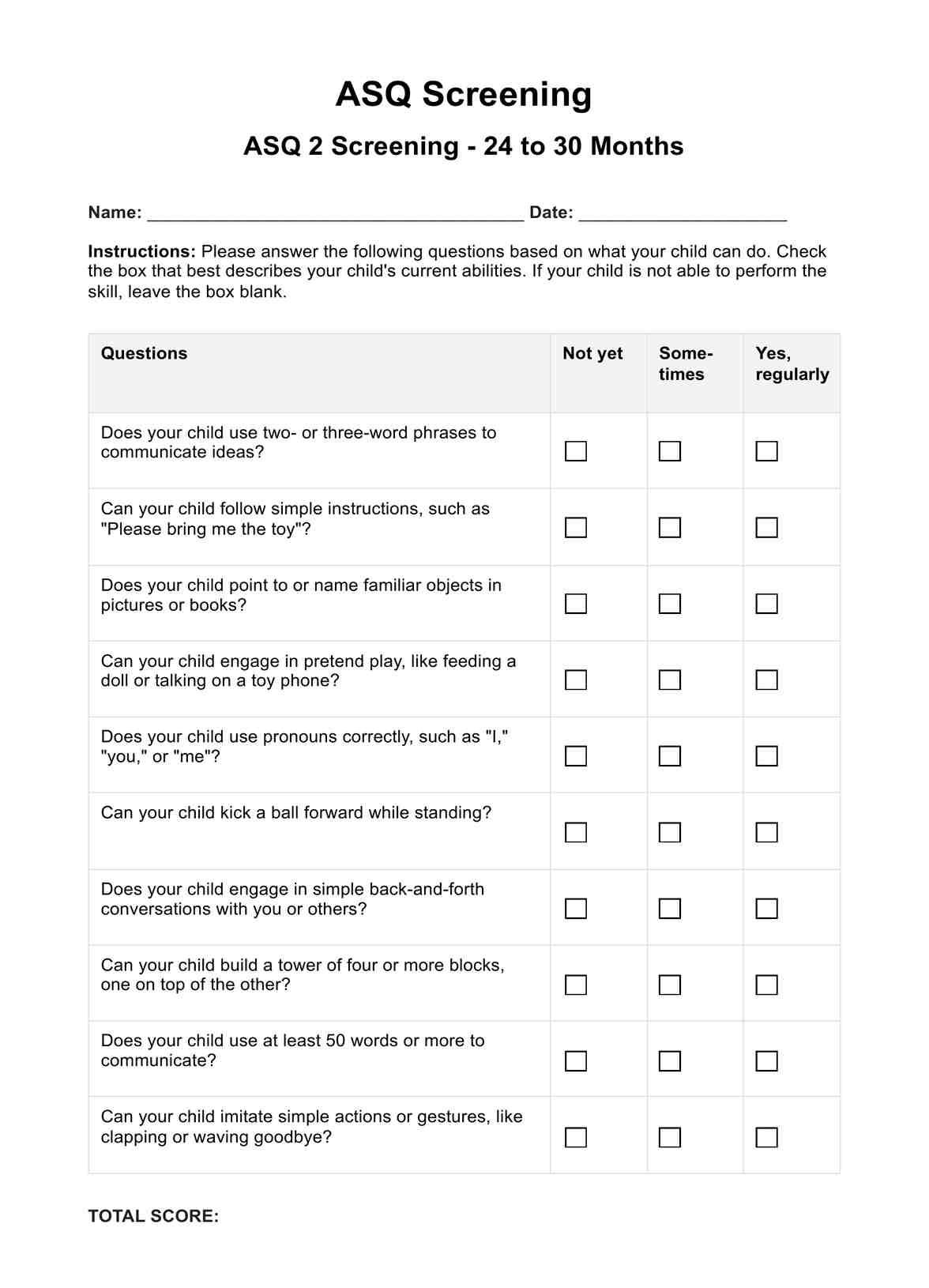Parents, caregivers, and early childhood educators use the ASQ 2s to assess and monitor the developmental progress of children aged 24 to 30 months. It is a valuable tool that empowers those involved in a child's care to gain insights into their skills and behaviors during this crucial stage of growth.

ASQ 2
ASQ 2 Screening is used to identify potential developmental delays early and connect with essential early intervention services. Download Free PDF here!
ASQ 2 Template
Commonly asked questions
The ASQ 2s is used when a child reaches 24 to 30 months of age, as it is specifically designed to assess developmental milestones during this period. Parents and caregivers can use the ASQ 2s during routine check-ups, while early childhood educators can utilize it as part of their assessments within educational settings.
To use the ASQ 2s, parents or caregivers are given a parent-report questionnaire that covers various developmental domains. They observe and respond to specific questions about their child's skills and behaviors. Healthcare providers or educators then score the completed questionnaire to assess the child's progress and identify potential developmental concerns.
EHR and practice management software
Get started for free
*No credit card required
Free
$0/usd
Unlimited clients
Telehealth
1GB of storage
Client portal text
Automated billing and online payments











